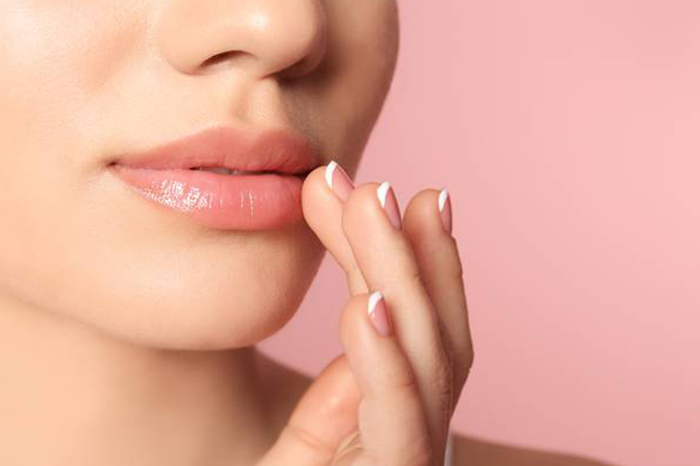Aphthae is not a life-threatening disease, but the subjective difficulties associated with them can be so serious that they do not allow the victim to eat food, liquids or speak. Here are our tips on how to deal with afts as soon as possible.
Aphthae are unpleasantly painful ulcers on the mucous membrane of the mouth. They appear in about 25% of the population and return within a lifetime. They are most often found at the age of 10 to 40 years. Technically, this inflammatory disease of the oral cavity is called aphthous stomatitis. It is impossible to determine with certainty why someone has aphthae and someone does not. Treatment of AFT is mainly aimed at relieving pain and accelerating healing.
Afts
There are three types of aft.
Aphthae can occur anywhere in the mucous membrane of the mouth – on the tongue, under the tongue, on the palate, on the gums, on the mucous membrane of the pharynx or on the mucous membrane of the cheeks (inner side of the face). Aphthae can be divided into three types: small, large and herpetiform. The most common are small oval – shaped aphthae with a red border . They usually heal within one to two weeks, leaving no scars. Large aphthae are larger than 10 mm, deeper, tissue damage is heavier. Heals longer – 6-8 weeks and a scar remains. They are very painful. Herpetiform aphthae are the least common, affect mainly adult women and are characterized by seeding up to 100 small aphthae, which indicates significant pain.
Why do afts occur?
Experts report that aphthae of unclear etiology. This means that it is impossible to determine with certainty why these painful ulcers occur. Inheritance plays an important role – if both parents have problems with aphthae, then we can expect a 90% probability of their appearance in children. In addition, aphthae can occur in response to slight damage to the mucous membranes, which we may not even suspect – for example, when carelessly brushing teeth, eating solid food or too hot food. It is also claimed that the formation of aft can be caused by food allergens (milk, cheese, flour, nuts, tomatoes, citrus fruits and crustaceans) or certain medications or certain components of toothpastes (artificial essence of cinnamon, foaming agents). Aphthae may also be associated with a deficiency of iron , folic acid, vitamins B6 and B12. or zinc. Regarding the causes of aphthae, they also talk about stress, hormonal changes, as well as the connection with certain diseases (celiac disease, Crohn’s disease, Behcet syndrome).
How to treat aphthae?
Treatment of AFT usually takes from 5 to 14 days, but larger afts can last several weeks. Since we do not know the cause of their occurrence, we treat only the symptoms and focus on relieving pain, accelerating healing and preventing secondary infection. It is advisable to start treatment of aft as soon as possible – experienced patients with AFT may feel that the problem is approaching again.
Topical preparations with disinfectant and analgesic (analgesic) action are mainly used for the treatment of aft. These can be classic rinses, sprays and lollipops for the treatment of sore throats, as well as special gels from AFT, which cover the affected area, reduce pain when eating and talking and accelerate healing. Fans of natural treatment can rinse their mouth with decoctions of herbs, for example, sage, chamomile or rapeseed have proven themselves for rinsing the oral cavity.. Rinse your mouth several times a day. From food additives, we can recommend products designed to maintain the normal condition of the skin (vitamin B, iron, folic acid, zinc, vitamin C). In severe cases, the doctor may prescribe general treatment (immunomodulators, corticoids). Laser treatment is also available.
Some more tips from afta
Be careful and observe what causes aphthae in you – then you can avoid some provoking factors (for example, some meals or situations).
Pay attention to the diverse and balanced side, especially the sufficient amount of vitamins C, B6 and B12 and iron.
Beware of large amounts of fluids, especially in young children who refuse to drink because of the pain of aphthae.
Feeding pain relieves a piece of ice that you allow to melt in your mouth, or ice cream.
Do not eat solid food, spicy or acidic food that can irritate the mucous membranes (for example, pastries with a crispy crust).
Brush your teeth very carefully with a soft toothbrush.
Use non-foaming toothpastes or pastes for sensitive teeth (with low abrasiveness, without SLS – sodium lauryl sulfate).
If the user has a removable denture, make sure that it fits you – bruises can contribute to the formation of AFT.
If you break a tooth, repair it immediately – the sharp edge can cause irritation of the oral mucosa.
Consult a doctor in the following cases: aphthae do not heal for 14 days, unusually large or numerous, pain prevents the intake of food and fluids, fever is present.

Leave a Reply